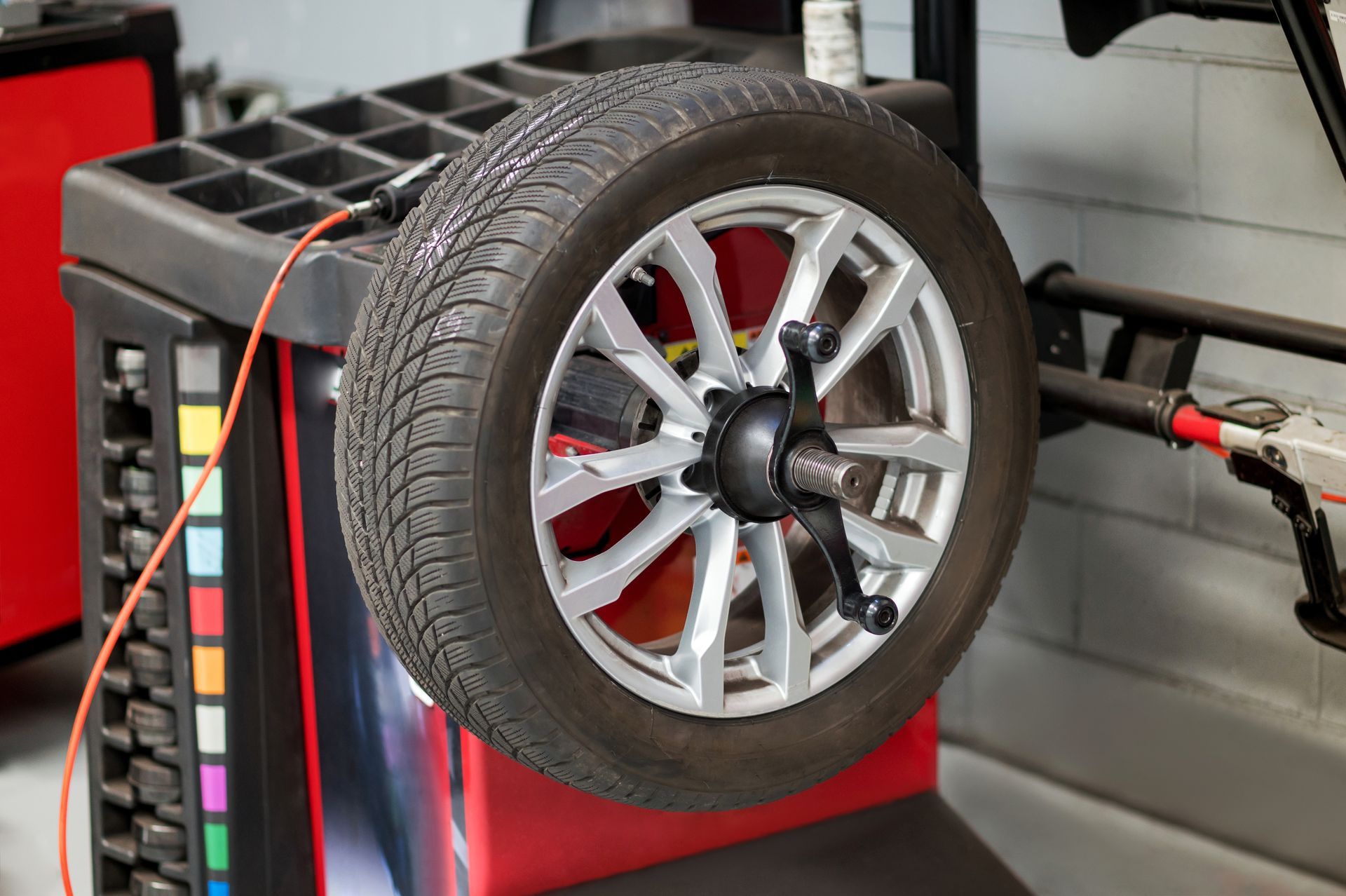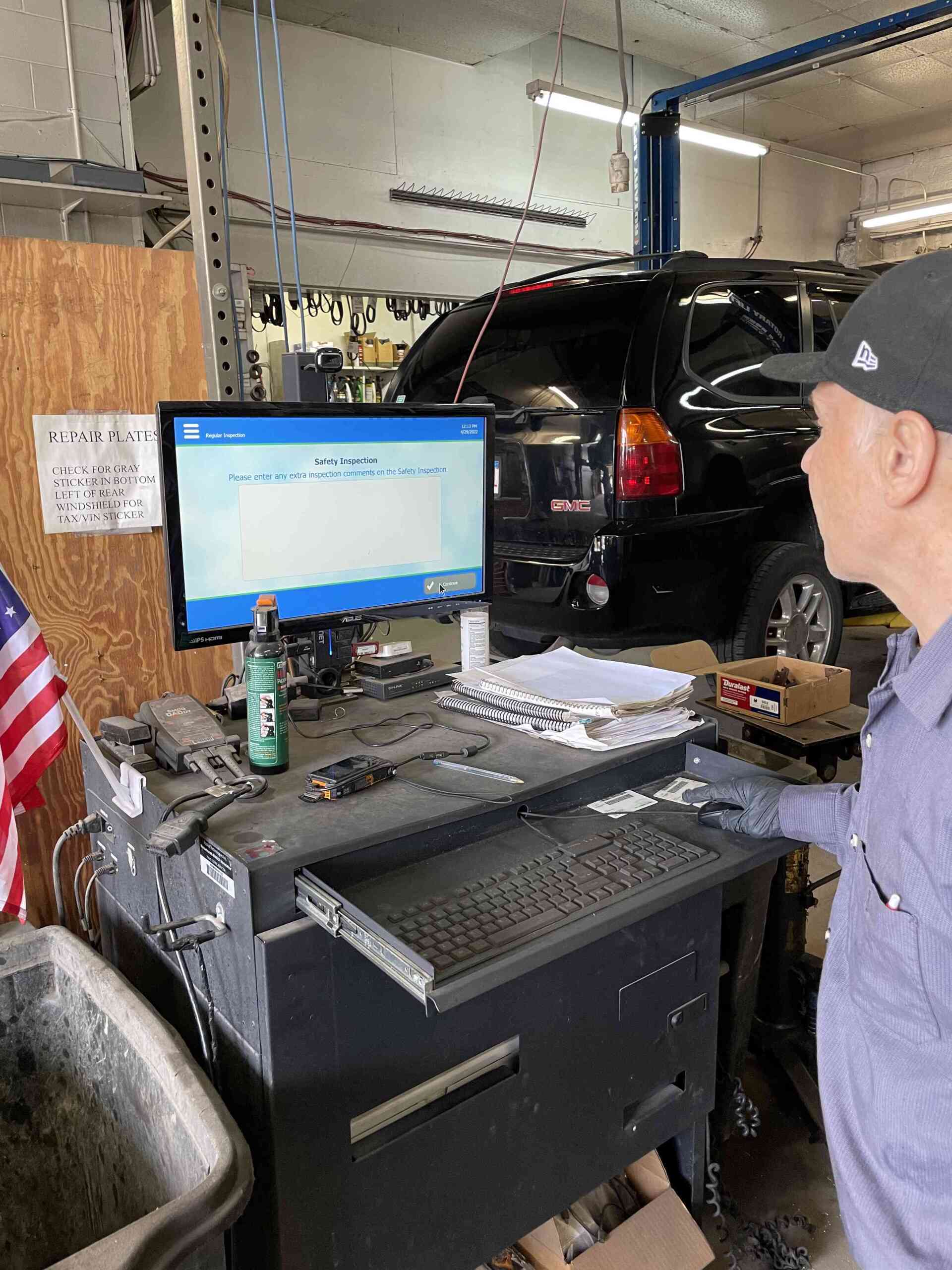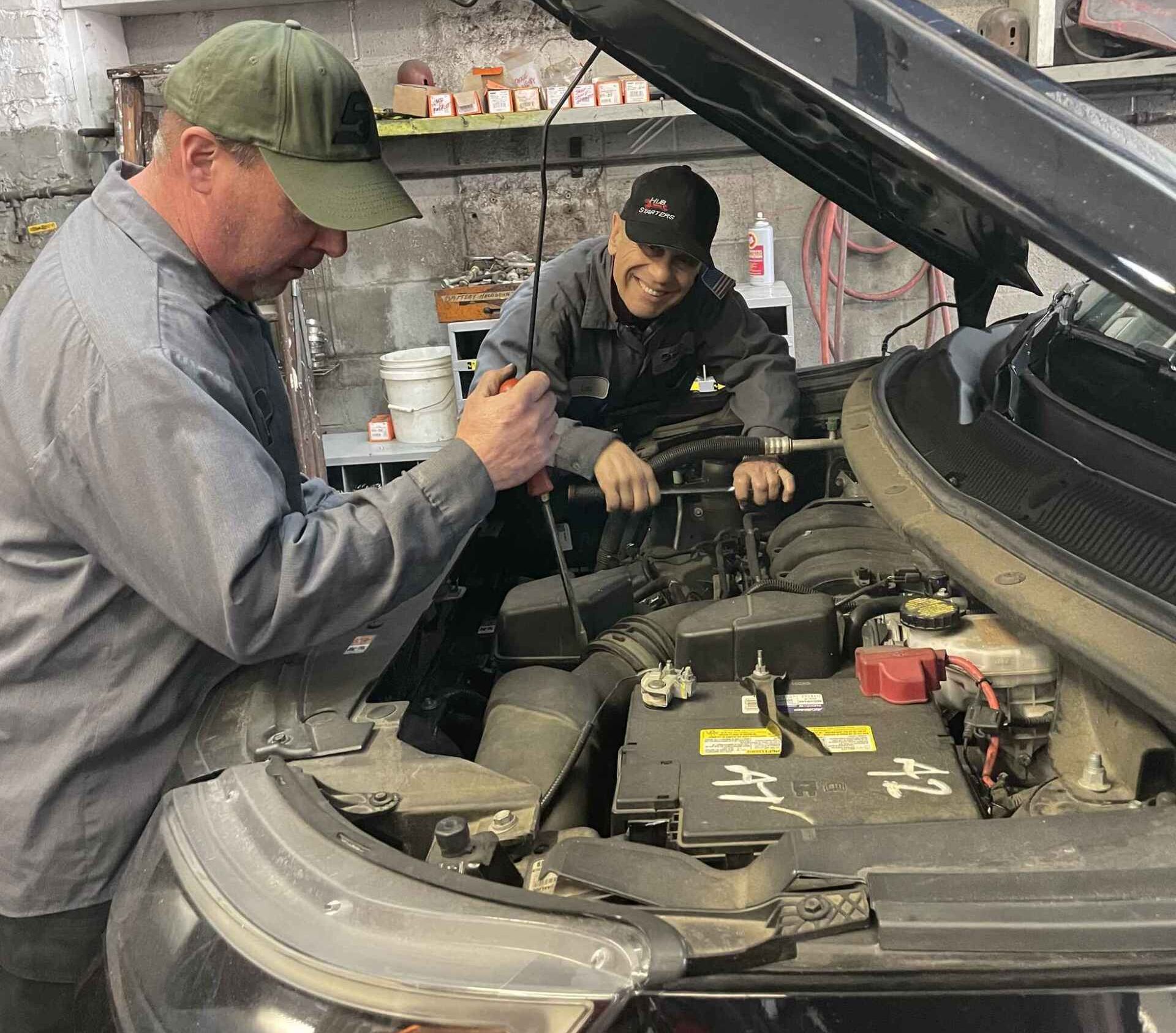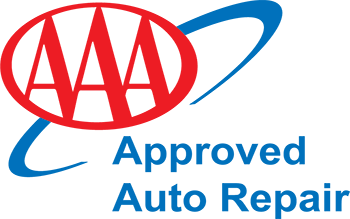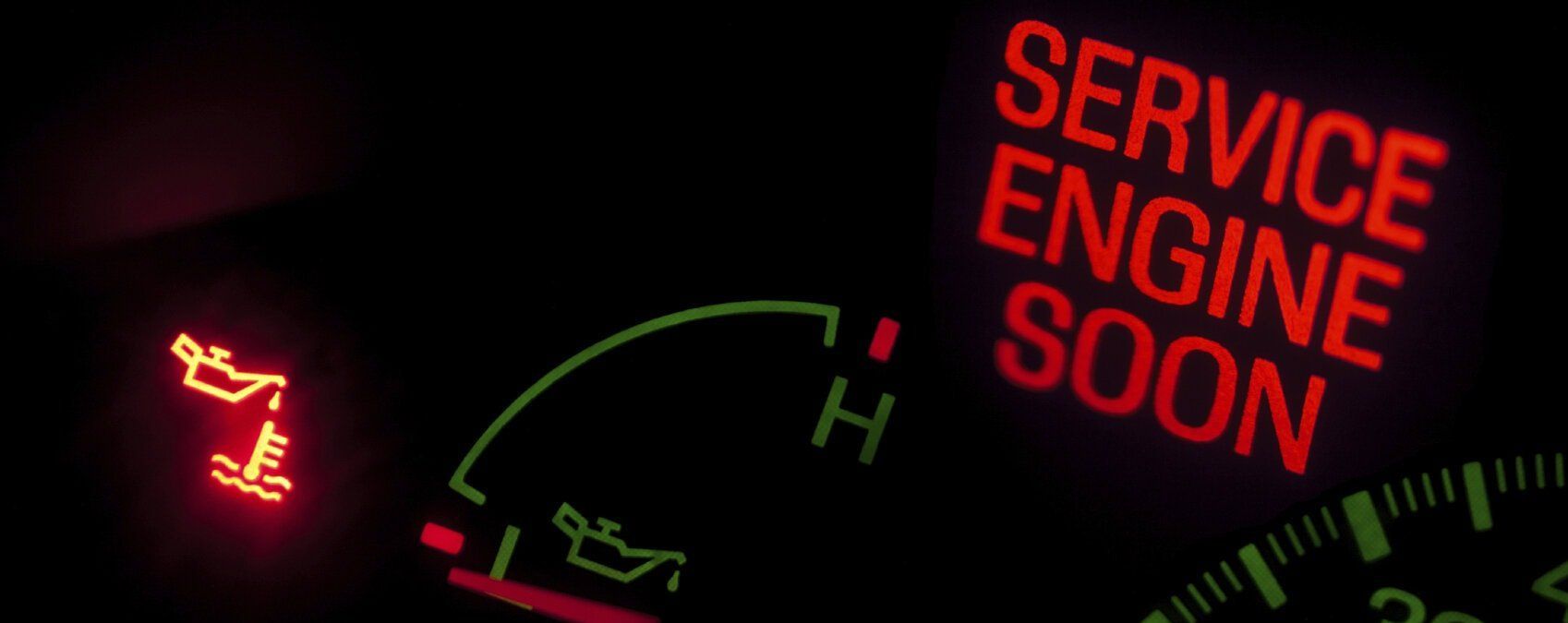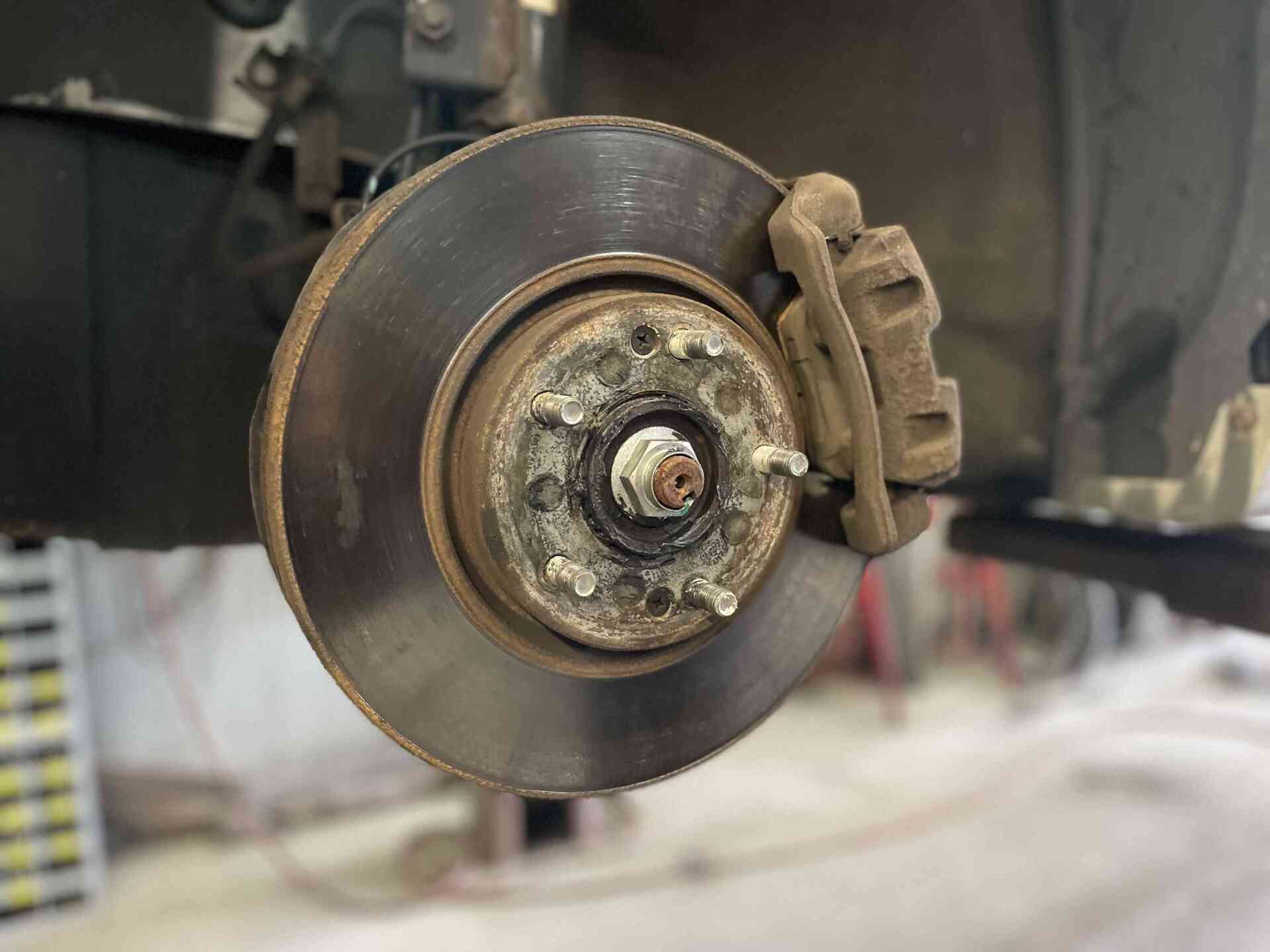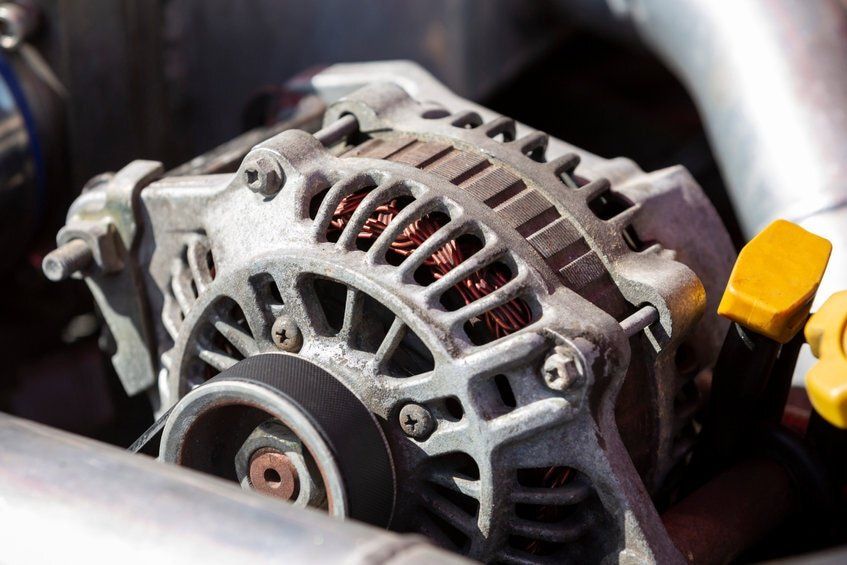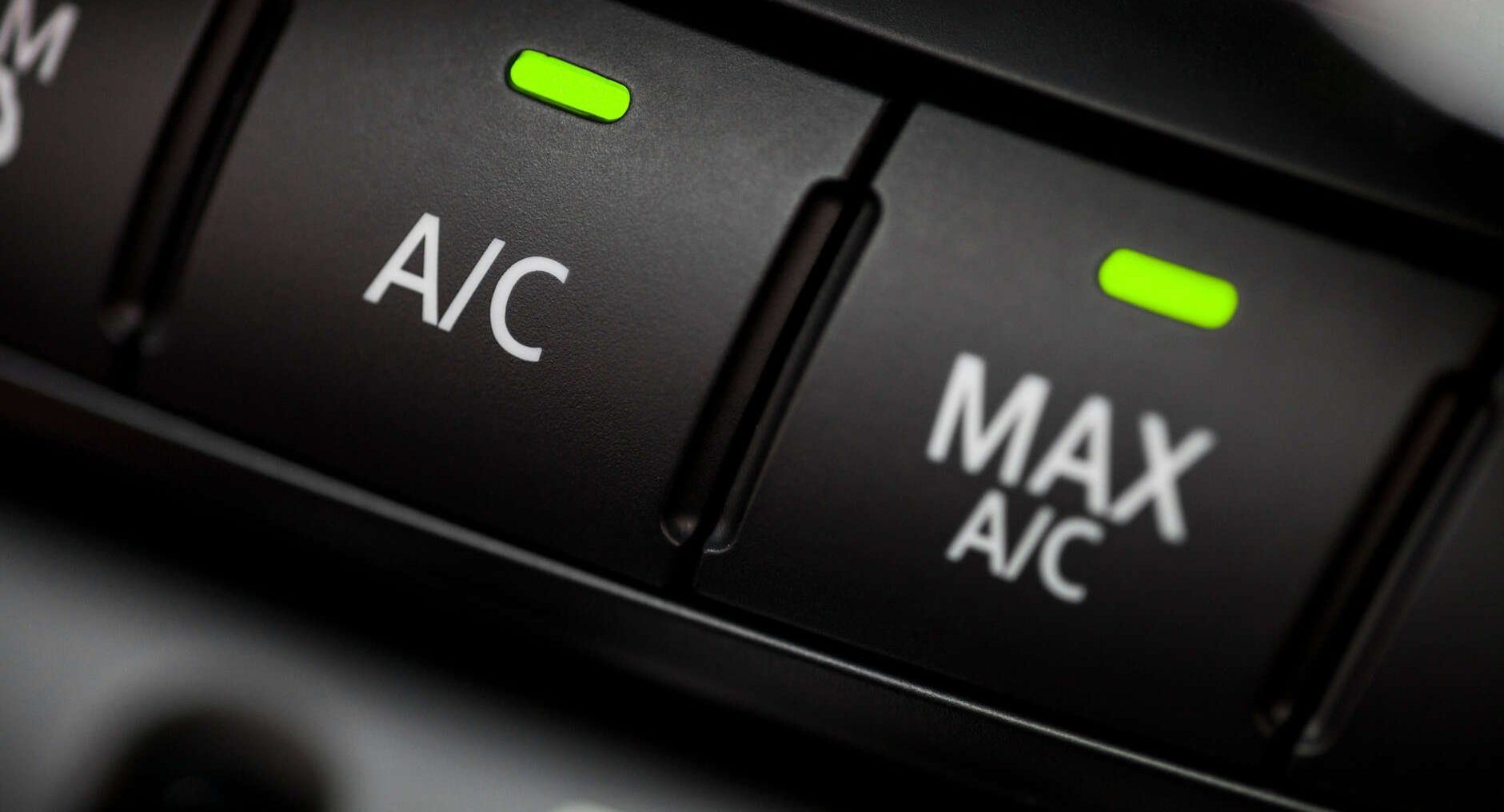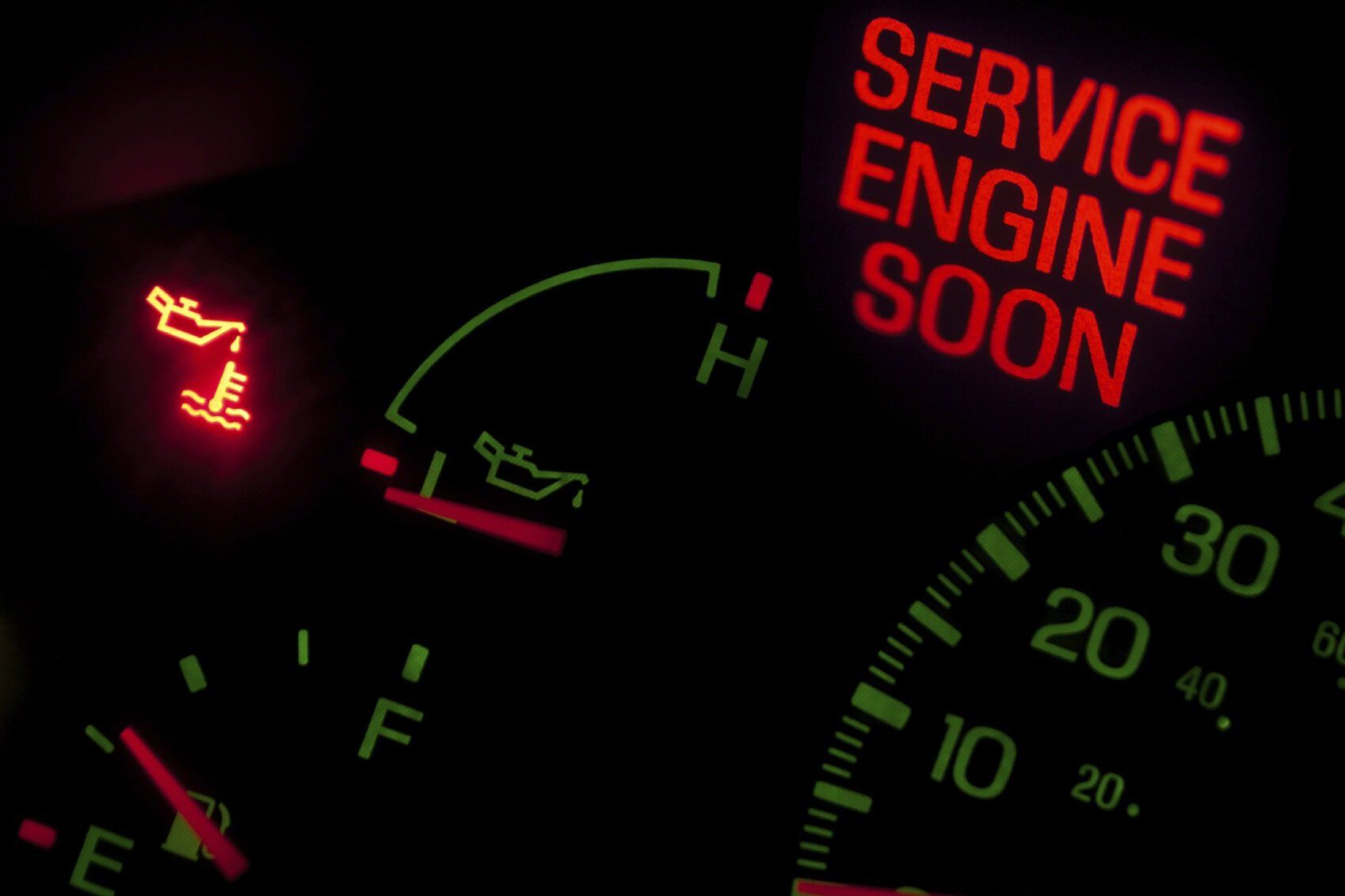November 21, 2025
Preparing Your Vehicle for Winter in Malden: Essential Cold-Weather Car Care
When temperatures drop and the first snowflakes start falling across Malden, your vehicle faces some of its biggest challenges of the year. Massachusetts winters are notoriously harsh, and drivers who commute from Malden to Boston or navigate local streets know exactly how demanding these conditions can be on a car. Between bitter cold mornings, road salt, and unpredictable weather swings, winter puts every system in your vehicle to the test. The good news? With proper winter car maintenance, you can avoid most cold-weather breakdowns and drive with confidence throughout the season. This guide covers everything Malden drivers need to know about preparing their vehicles for winter—from essential maintenance tasks to emergency preparedness.
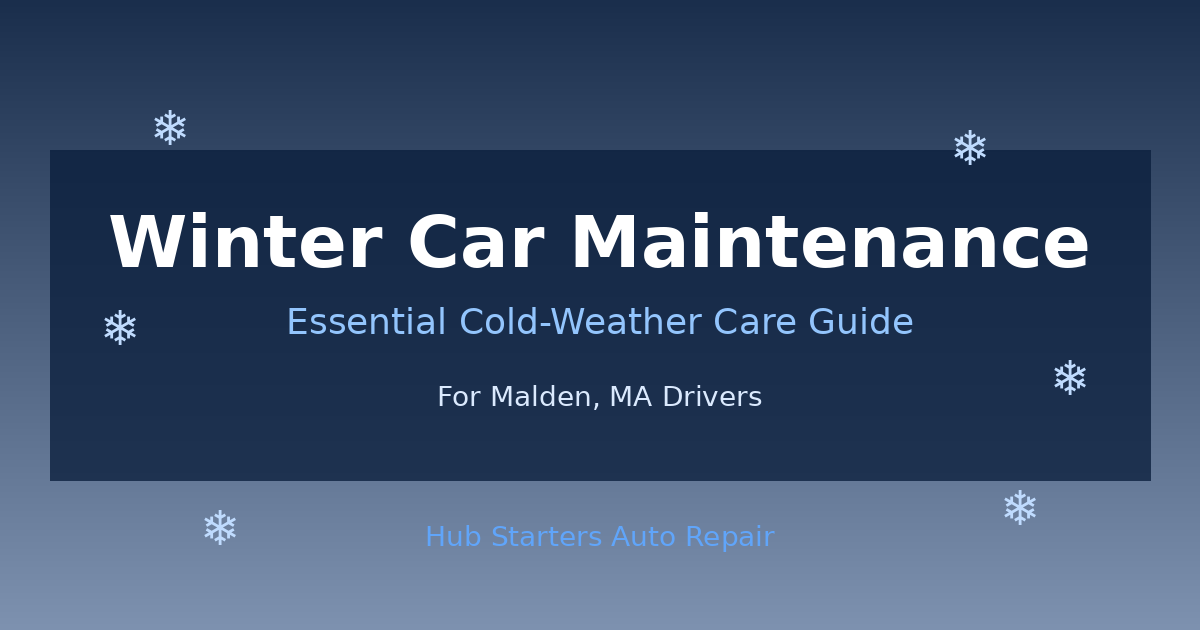
Why Winter is Critical for Your Vehicle's Health
Winter in Massachusetts isn't just uncomfortable—it's genuinely brutal on vehicles. When temperatures plunge below freezing and stay there for weeks, every fluid, battery, and rubber component in your car is working overtime. Malden residents experience the full range of New England winter challenges, from sub-zero mornings to the freeze-thaw cycles that create potholes and strain suspension systems.
Cold weather affects your car's battery more than any other component. At 32°F, a car battery loses about 35% of its strength. At 0°F, it loses up to 60% of its power—right when your engine needs more power to turn over. This is why AAA reports that dead batteries are the number one cause of winter breakdowns, accounting for roughly one-third of all roadside assistance calls during cold months.
Your tires are equally vulnerable. As temperatures drop, tire pressure decreases by about one PSI for every 10-degree drop in temperature. Underinflated tires reduce traction, increase stopping distances, and wear unevenly—all serious safety concerns when roads are slick with snow or ice. Additionally, tire rubber becomes less flexible in cold weather, which is why many drivers throughout Malden and surrounding communities invest in winter tires for improved grip.
Other fluids in your vehicle thicken when cold, making them less effective. Engine oil becomes more viscous, which means your engine works harder during cold starts. Antifreeze that's old or diluted may not protect your engine block from freezing. Even windshield washer fluid can freeze solid if it's not rated for low temperatures, leaving you unable to clear road salt spray during your commute.
The cost difference between prevention and emergency repair is substantial. A pre-winter inspection typically runs $50-100 and identifies potential problems while they're still affordable to fix. Compare that to a tow from the Fellsway during rush hour, a new battery installation in a parking lot, or engine damage from a frozen coolant system—expenses that can easily exceed $500-1,000. For Malden drivers who depend on their vehicles daily, winter preparation isn't optional.
Essential Winter Preparation Checklist
Getting your vehicle ready for winter doesn't require mechanical expertise, but it does require attention to several key systems. Here's what every car needs before the first serious cold snap hits:
Battery Testing and Replacement
Your battery is the heart of cold-weather reliability. Most auto parts stores and service centers offer free battery testing, which measures both voltage and cold cranking amps (CCA)—the battery's ability to start your engine in cold conditions. If your battery is more than three years old or tests weak, replacement before winter is smart insurance. Modern cars with sophisticated electronics draw power even when parked, which means batteries work harder year-round. A battery that struggles in October will almost certainly fail in January. When choosing a replacement, look for a battery with high CCA ratings—600 or above for most vehicles—to ensure reliable starts even on the coldest Malden mornings.
Tire Inspection and Tread Depth
Tires are your only contact with the road, making them critical for winter safety. Check tread depth using the penny test: insert a penny into the tread with Lincoln's head upside down. If you can see the top of his head, your tread is below 2/32" and the tires need replacement. For winter driving, deeper tread (at least 4/32") provides significantly better traction in snow. Inspect all four tires for uneven wear, cracks, or bulges. Check tire pressure when tires are cold—early morning is best—and inflate to the manufacturer's recommended PSI, which you'll find on a sticker inside the driver's door frame. Many Malden drivers switch to dedicated winter tires, which use specialized rubber compounds that stay flexible in freezing temperatures. While all-season tires work for many drivers, winter tires offer noticeably better performance in snow, ice, and temperatures below 45°F.
Fluid Checks and Changes
Multiple fluids need attention before winter arrives. Start with antifreeze (coolant), which prevents your engine from freezing and cracking. A simple tester from any auto parts store measures antifreeze concentration—you want protection down to at least -30°F for Massachusetts winters. If the coolant looks rusty or dirty, consider a flush and fill. Engine oil is equally important. If you're due for an oil change, consider switching to a lower viscosity winter-weight oil if your owner's manual recommends it. Thinner oil flows better when cold, reducing engine wear during those first critical seconds after startup. Don't forget windshield washer fluid rated for sub-zero temperatures—nothing's more dangerous than losing visibility while driving because your washer fluid froze. Fill the reservoir completely, as you'll use washer fluid constantly to clear road salt spray during winter commutes.
Wiper Blade Replacement
Windshield wipers take tremendous abuse during winter. Old, brittle blades streak and chatter, reducing visibility just when you need it most. If your wipers leave streaks, make noise, or miss sections of the windshield, replace them before winter. Many drivers in snowy areas opt for winter wiper blades, which have a rubber boot that prevents ice and snow from clogging the blade frame. Quality wipers typically last six months to a year, so fall replacement ensures they'll perform well through winter.
Brake System Inspection
Your brakes work harder in winter conditions, with longer stopping distances on wet and icy roads. Have a technician inspect brake pads, rotors, and brake fluid. Brake pads should have at least 4mm of material remaining—anything less should be replaced before winter. Brake fluid attracts moisture over time, which can freeze in brake lines and reduce braking effectiveness. If it hasn't been changed in three years, consider a brake fluid flush.
Heating and Defrosting System Check
A functioning heater isn't just about comfort—it's essential for safety. Your defroster needs to clear ice and fog from windows quickly, especially during morning commutes. Test your heating system early in fall. If it's blowing lukewarm air, you might have low coolant, a failing thermostat, or a clogged heater core—all problems better fixed before you're scraping ice off the inside of your windshield. Also check that all defrost vents are clear and directing air properly to the windshield.
Professional Winter Inspection Services
While some winter preparation tasks are DIY-friendly, a professional inspection provides peace of mind and catches problems you might miss. A comprehensive winter vehicle inspection goes far beyond checking battery voltage and tire pressure—skilled technicians examine your car systematically to identify any weakness that cold weather might exploit.
During a professional inspection, technicians check the entire charging system, not just the battery. A weak alternator or corroded battery terminals can cause starting problems even with a good battery. They test the starter motor's draw and inspect all cables and connections for corrosion or looseness. Under the hood, they examine belts and hoses for cracks, brittleness, or signs of wear. Cold weather makes these rubber components more likely to fail, and a broken serpentine belt can leave you stranded immediately.
The inspection includes a thorough examination of your vehicle's undercarriage. Technicians look for rust developing on brake lines, fuel lines, or exhaust components—all accelerated by road salt exposure. They check suspension components and steering linkages for wear, as hitting ice-filled potholes can quickly damage weakened parts. They also inspect the exhaust system for leaks, which become more dangerous in winter when cars are often idling with windows closed.
A proper winter inspection takes 30-45 minutes and typically costs between $50-100, though many shops offer pre-winter specials or include it free with other services. The best time to schedule this inspection is October or early November—before the rush of last-minute appointments when the first cold snap hits and before problems become emergencies. At Hub Starters Auto Repair, our winter inspection package includes all these checks plus a detailed report of your vehicle's condition, so you know exactly what needs attention now versus what can wait until spring.
Most technicians will provide a written report prioritizing repairs. Not everything needs immediate attention, but issues affecting safety or likely to cause breakdowns should be addressed before winter settles in. Ask questions about any recommendations you don't understand. A good shop will explain what they found, why it matters, and what happens if you delay the repair.
Emergency Preparedness for Malden Drivers
Even with perfect preparation, winter emergencies can happen. A patch of black ice, a sudden mechanical failure, or simply getting stuck in deep snow requires proper emergency supplies. Every vehicle driven in Malden during winter should carry a basic emergency kit.
At minimum, keep a quality ice scraper and snow brush in your car—not a flimsy plastic toy, but a sturdy tool with a long handle and brass blade that won't scratch glass. Add a small snow shovel for digging out from parking spots or unsticking your car. Jumper cables or a portable battery jump starter can save you hours of waiting for assistance when your battery fails. A warm blanket and some chemical hand warmers provide crucial comfort if you're stuck waiting for help in sub-zero temperatures.
Include a flashlight with fresh batteries, a first-aid kit, and some basic tools. A bag of sand or cat litter provides emergency traction if you're stuck on ice. Keep a phone charger in your vehicle—preferably one that plugs into the 12V outlet, since you might need to call for help when your phone battery is low. Some drivers also carry emergency flares or a reflective triangle to make their vehicle visible if stopped on the roadside.
When winter breakdowns occur, knowing basic troubleshooting helps. If your car won't start and the engine cranks slowly, the battery is likely the problem. If you hear rapid clicking when turning the key, the battery is almost certainly dead. If the engine cranks normally but won't start, you might have a fuel or ignition issue—time to call for professional help. If your car starts but dies immediately, or runs roughly, let it warm up a few minutes before trying to drive.
One crucial winter habit: maintain at least a half tank of gas throughout the season. This prevents condensation from forming in your fuel tank (which can freeze in fuel lines) and ensures you have plenty of fuel if you get stuck in traffic or need to run the engine for heat while waiting for assistance. Additionally, your fuel pump uses gasoline for cooling—running on fumes can damage the pump.
If you break down in Malden during winter, safety comes first. If possible, get your vehicle completely off the road. Turn on hazard lights, and if it's dark or visibility is poor, stay in your car with your seatbelt on—you're safer inside than standing near traffic. Run the engine periodically for heat, but crack a window slightly to ensure fresh air circulation and prevent carbon monoxide buildup, especially if snow is covering your exhaust pipe.
Winter Driving Habits That Protect Your Car
How you drive and maintain your vehicle during winter months significantly impacts its longevity and reliability. Small habit changes reduce wear and tear while improving safety.
The question of whether to warm up your engine generates debate, but modern fuel-injected engines don't require extended idling. Thirty seconds to a minute of idling allows oil to circulate, then gentle driving completes the warm-up more efficiently than sitting in a driveway. Harsh acceleration when the engine is cold causes excessive wear, so drive gently for the first few miles. Avoid high RPMs and aggressive driving until the temperature gauge reaches its normal operating range.
Road salt is necessary for safe winter driving but devastating to vehicles. Salt accelerates rust formation on metal components throughout your car—body panels, brake lines, suspension parts, and the exhaust system. Combat this by washing your car regularly during winter, paying special attention to the undercarriage. Many car washes offer undercarriage sprays that flush salt from areas you can't reach. Try to wash your car when temperatures are above freezing, and aim for at least once every two weeks during the heaviest salt season. If you park in a garage, snow and salt melt off your car and create a rust-promoting environment unless you wash regularly.
Where you park matters. Garage parking protects your car from temperature extremes, reducing stress on the battery and keeping windows clear of ice. If you park on the street in Malden, choose spots away from intersections where salt concentration is heaviest. Avoid parking under trees during ice storms—falling branches can cause serious damage. If snow is forecast, don't use your parking brake when you park. In extremely cold weather, brake shoes can freeze to drums, making it impossible to release them. Simply put the car in park (or first gear for manuals) instead.
Avoid sudden stops and starts on cold mornings. Cold tires have less traction, cold brakes are less effective, and cold suspension components are stiffer. Give yourself extra time and space for every maneuver until your car fully warms up. This gentler treatment reduces wear on multiple systems while improving your safety margin.
Finally, pay attention to warning signs. Modern cars communicate problems through dashboard warning lights, unusual sounds, or changes in performance. A grinding noise when braking, a vibration when accelerating, or a dashboard light you don't recognize all deserve attention before they become serious problems. Addressing small issues promptly prevents them from becoming expensive repairs or dangerous failures.
Drive Confidently Through Winter
Winter in Malden doesn't have to mean constant worry about car problems. With proper preparation and maintenance, your vehicle can handle everything a Massachusetts winter throws at it—from sub-zero starts to salt-covered commutes to surprise snowstorms. The key is tackling winter preparation systematically: test your battery, inspect your tires, check all fluids, and address any mechanical issues before cold weather arrives.
Remember that professional inspection catches problems you might miss and provides expert guidance on what needs immediate attention versus what can wait. The small investment of time and money in October or November pays dividends in reliability, safety, and peace of mind throughout the winter months.
At Hub Starters Auto Repair, we've been helping Malden drivers prepare for winter for years. We understand the specific challenges local drivers face and what it takes to keep vehicles running reliably through harsh New England weather. Whether you need a comprehensive winter inspection, battery testing, tire service, or any other cold-weather preparation, our experienced technicians are ready to help.
Don't wait until the first major snowstorm or sub-zero morning to discover your car isn't ready for winter. Schedule your winter vehicle inspection today and drive with confidence all season long. Contact Hub Starters Auto Repair to book your appointment—we're here to keep Malden drivers safe and on the road, no matter what winter brings.
